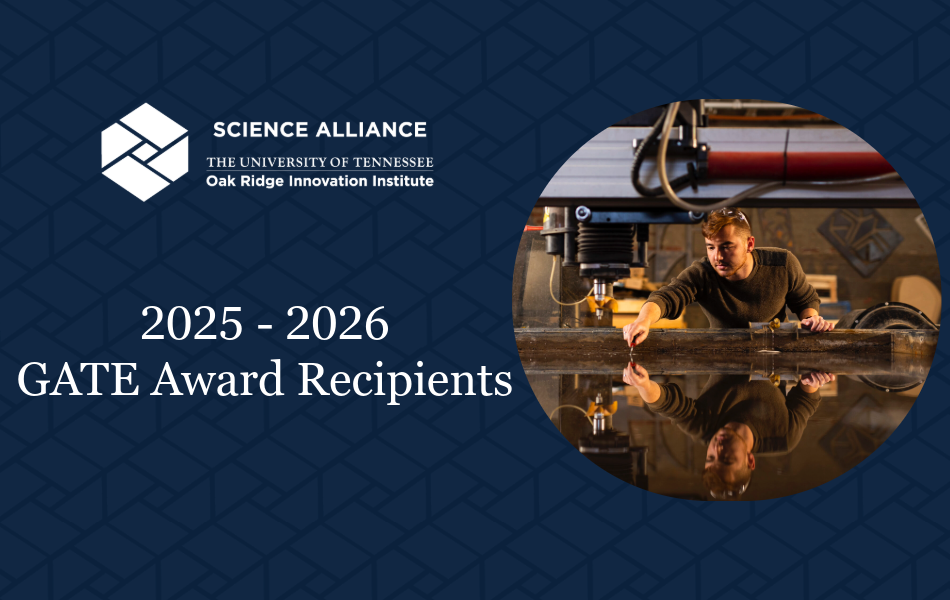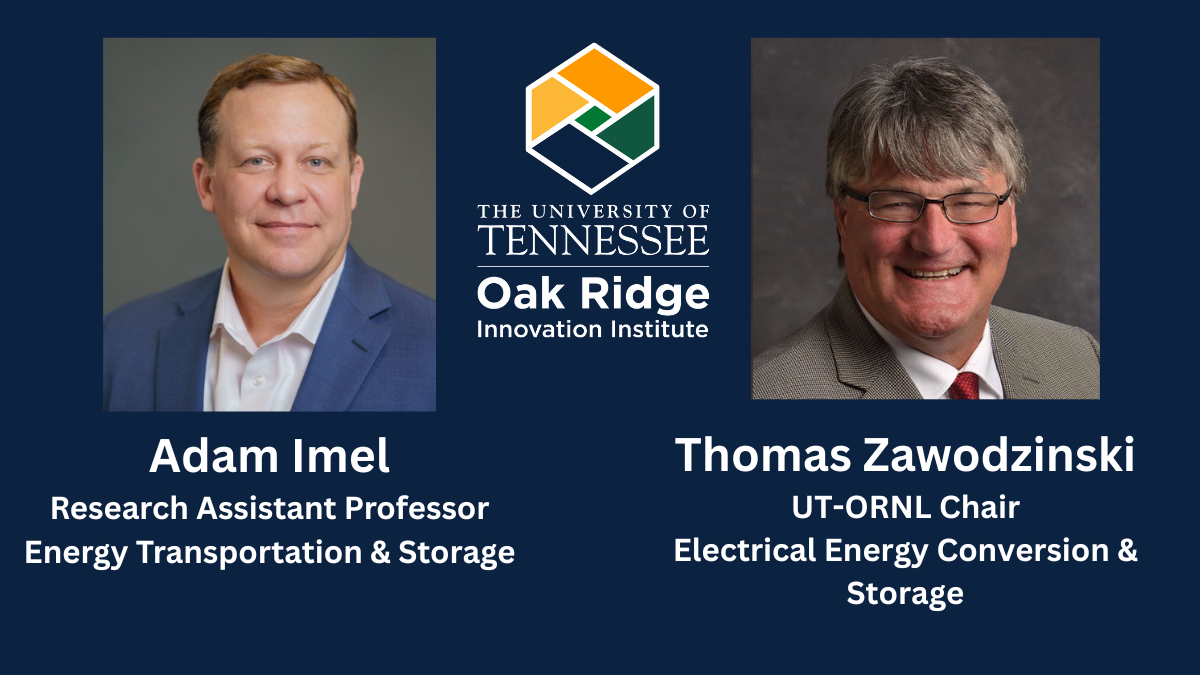Luke Scime, an associate staff scientist and part of the energy systems analytics team, is one of three new University of Tennessee-Oak Ridge Innovation Institute fellows. He uses complex algorithms to program computers to use artificial intelligence to search for flaws in 3D printed items.
Appointed for one-year renewable terms, UT-ORII Fellows are responsible for working collaboratively across organizations; generating white papers; and helping to identify opportunities and resources to build new joint programs. They receive stipends that support up to 25 percent of their base salary and benefits, and they are eligible for funding to seed new technical programs in strategic research areas of national impact.
Scime said being a fellow will open doors for him to share his expertise in quality control with UT researchers developing new manufacturing processes. Also, he said, “one of the biggest tie-ins will be working with UT PhD students.”
Scime, who focuses on the quality control of items produced for the nuclear power industry, said the beauty of advanced manufacturing is its efficiency: Parts can be designed, created, and tested, with needed tweaks made before the manufacturing process continues.
“What’s slowing us down is the inspection time,” he said.
Additive manufacturing creates items by printing them layer after layer. Manually testing for hidden flaws has typically involved studying a series of photos taken during the manufacturing process, dissecting and inspecting parts, or X-raying parts. It is slow and costly work.
Scime’s expertise lies in finding faster, less expensive, and more effective ways to analyze 3D printed items. He develops novel machine learning algorithms for the real-time monitoring of metal powder bed additive manufacturing machines.
In very simple terms, here’s how it works: Multiple sensors are used to capture images as each layer of material is added. Computers employing artificial intelligence can quickly review the collected data to detect tiny errors or voids and analyze whether the item is structurally sound and safe to use—or whether something about the manufacturing process must be tweaked.
Scime came to ORNL as a postdoctoral researcher in 2018. He has a bachelor’s degree in mechanical engineering from the University of Florida. He has a master’s degree and doctorate, both in mechanical engineering, from Carnegie Mellon University.
When he’s not working, Scime helps coach Oak Ridge High School’s FIRST Robotics Competition team. Coaching the team is a labor of love since Scime’s own experience in First Robotics as a middle school and high school student helped put him on his career path.




